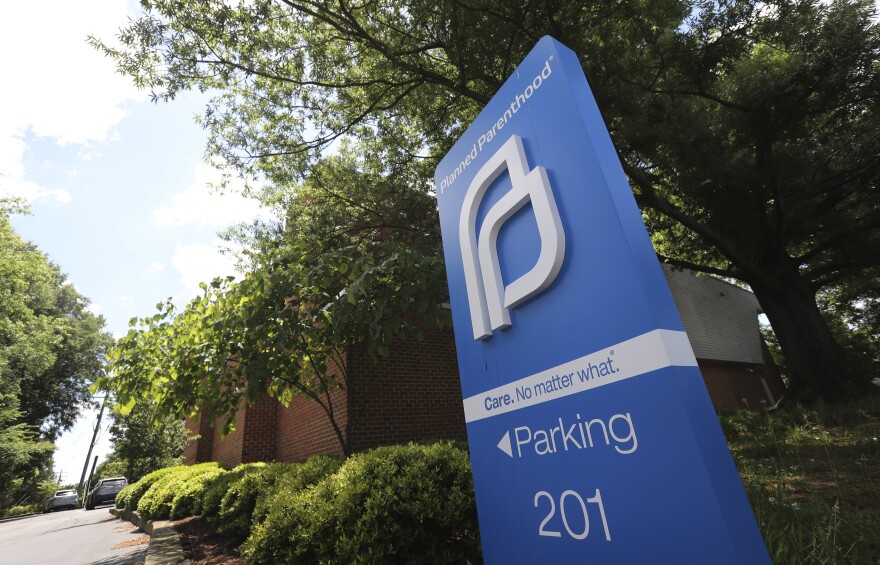Fifty-one years after Roe v. Wade was decided and two years after it was reversed, Democratic state lawmakers are taking steps to remove obstacles to abortions.
The legislation is being introduced by Rep. Tarik Khan, D-Philadelphia. It would repeal a law, signed by then-Republican Gov. Tom Corbett, that required abortion clinics to meet the same requirements as ambulatory surgical facilities. It would also remove a mandate that abortion providers maintain a transfer agreement with hospitals.
NPR reported that some clinics, including Planned Parenthood in Southeastern Pennsylvania, had to spend a lot of money to modify their spaces. The report said five clinics had closed after the law passed, though it was uncertain whether increased costs to comply were the reason.
“These are, make no doubt, restrictions that no other outpatient medical facilities have to have,” Khan said.
As a nurse practitioner, Khan has referred patients to get abortions. His mother was a nurse, he said. Two of her patients received illegal abortions before Roe v. Wade.
He said by removing the roadblocks to abortion, patients’ lives can be saved
“We know that by getting rid of this law, we will ensure safe access to anyone who requires or needs abortion care,” he said.
Signe Espinoza, executive director for Planned Parenthood Pennsylvania Advocates said despite abortion being legal in Pennsylvania, the state is still restrictive.
“Pennsylvanians are traveling hundreds of miles, reaching centers and being told that their one-day appointment now became two,” she said. “Being told that their healthcare will not be covered, even though it is a life saving procedure. And being harassed before they reach check in. The list goes on. This is the reality of abortion care in Pennsylvania.”
Community organizer for Planned Parenthood Pennsylvania Advocates Julia Cao said in order to receive an abortion, she had to go through multiple hurdles, including the 24-hour waiting period.
The waiting period means a patient must receive information, which includes information on the risks of abortion and childbirth, before waiting a day to schedule a procedure.
“I should not have been required to go through an interrogation by the law to receive a perfectly safe and common medical procedure,” Cao said. “No one should have to do what I did to receive basic health care.”
Anti-abortion groups are not in favor of the proposed legislation, arguing it sacrifices the safety of women. Maria Gallagher, legislative director for the PA Pro-Life Federation referred to the case of Kermit Gosnell, an abortion provider who was convicted of murder in 2013 in a case that developed after investigators found unsanitary conditions and human body parts at his Philadelphia clinic.
“We think it’s outrageous that basic health and safety standards could be repealed in Pennsylvania with regard to abortion facilities,” said Maria Gallagher, legislative director for the PA Pro-Life Federation. “I mean, at the time of the Kermit Gosnell tragedy, hair and nail salons received greater scrutiny than abortion facilities this legislation was vitally important to ensure the health and safety of women, so we think that this legislation needs to be safeguarded and not repealed.”
Rep. Danielle Friel Otten, D-Chester, said adding restrictions to abortion care does not end abortion, just safe ones.
“They [restrictions] mean more women putting their lives at risk, or the government putting women’s lives at risk,” she said. “They mean headlines like we’ve seen in Ohio and Texas, where women are dying of sepsis because they’re waiting for the government to allow them to receive the essential care that they need.”
Last month in Texas, Kate Cox attempted to receive an abortion after learning the fetus had a condition with a low chance of survival. If she had given birth, it would have likely prevented her from becoming pregnant again. In a lower court, the abortion was granted, but Attorney General Ken Paxton appealed the decision. Paxton also posted a letter on X, formerly Twitter, saying hospitals would be punished if they perform an abortion on Cox.
Cox left the state to receive the procedure, and several hours later, the Texas Supreme Court ruled against her.
In Ohio, a 10-year-old went to Indiana to receive a medical abortion after being raped — leading to an investigation of the doctor who performed it. The doctor was reprimanded but did not have her license suspended.




